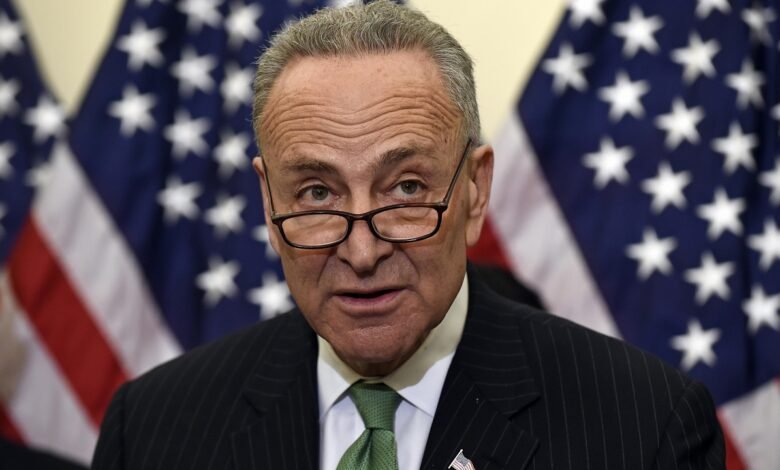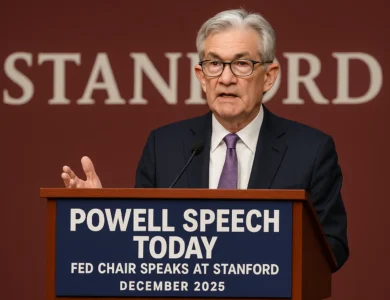
Chuck Schumer stands as one of the most recognizable and influential figures in contemporary American politics. As the current Senate Majority Leader and a representative of New York since 1999, Charles Ellis Schumer has built a remarkable career spanning over four decades in public service. From his humble beginnings in Brooklyn to becoming the most powerful Democrat in the U.S. Senate, Chuck Schumer’s political journey exemplifies dedication, strategic thinking, and unwavering commitment to his constituents.
Born and raised in New York, Schumer has become synonymous with Democratic leadership and progressive policy-making. His ability to navigate complex political landscapes while maintaining strong connections to his home state has earned him respect from both sides of the aisle. As a prominent U.S. Senator, Chuck Schumer has played pivotal roles in major legislative battles, from healthcare reform to infrastructure development, making him an indispensable figure in understanding modern American governance.
This comprehensive exploration delves into the life, career, and political impact of Chuck Schumer, examining his rise through the political ranks, his legislative achievements, and his current role as one of America’s most influential political leaders. Whether you’re a political enthusiast, student of government, or simply curious about the people shaping America’s future, understanding Chuck Schumer’s story provides valuable insights into the workings of American democracy.
Early Life and Educational Foundation
Chuck Schumer was born on November 23, 1950, in Brooklyn, New York, to Selma and Abraham Schumer. Growing up in a middle-class Jewish family in the Midwood neighborhood, Schumer developed early interests in politics and public service that would define his future career. His father worked as an exterminator, while his mother was a homemaker, instilling in him the values of hard work and community service.
The future Senate Majority Leader attended James Madison High School in Brooklyn, where he excelled academically and showed early signs of leadership potential. His educational journey continued at Harvard University, where he graduated summa cum laude with a Bachelor of Arts degree in 1971. Chuck Schumer’s academic excellence didn’t stop there; he went on to earn his Juris Doctor from Harvard Law School in 1974, ranking in the top of his class.
During his time at Harvard, Schumer became deeply involved in student politics and social activism, experiences that shaped his understanding of governance and public policy. These formative years laid the groundwork for his future political career, providing him with the intellectual foundation and networking opportunities that would prove invaluable in his subsequent rise through the political ranks.
Political Career Beginnings
Chuck Schumer’s entry into politics came remarkably early in his life. At just 23 years old, he was elected to the New York State Assembly in 1974, representing the 45th district in Brooklyn. This early victory demonstrated his natural political acumen and ability to connect with voters, skills that would serve him throughout his career.
During his six years in the State Assembly, Schumer established himself as a dedicated legislator focused on constituent services and progressive policy initiatives. He sponsored numerous bills related to consumer protection, housing rights, and small business development. His work in the Assembly caught the attention of Democratic Party leaders and established his reputation as a rising star in New York politics.
The prominent U.S. Senator’s ability to understand complex policy issues and communicate them effectively to the public became evident during these early years. His colleagues noted his tireless work ethic and his commitment to thorough research on every issue he tackled, traits that would become hallmarks of his legislative approach throughout his career.
Rise to National Prominence
House of Representatives Era
In 1980, Chuck Schumer made the leap to national politics by winning election to the U.S. House of Representatives, representing New York’s 16th congressional district, which later became the 9th and 10th districts due to redistricting. During his 18 years in the House, Schumer built a national profile through his work on several high-profile committees and his involvement in major legislative initiatives.
As a House member, Chuck Schumer served on the House Judiciary Committee, where he played crucial roles in significant national debates. He was instrumental in crafting and passing the Brady Handgun Violence Prevention Act, landmark gun control legislation that required background checks for firearm purchases. This achievement demonstrated his ability to work across party lines on contentious issues while maintaining his progressive principles.
Schumer’s expertise in financial matters also became apparent during his House tenure. He served on the House Banking Committee and became known for his detailed knowledge of financial regulations and consumer protection laws. His work on these committees established him as a go-to expert on financial policy, a reputation that would prove valuable in his later Senate career.
Senate Campaign and Victory
The 1998 Senate race marked a turning point in Chuck Schumer’s career. Running against popular three-term Republican incumbent Al D’Amato, Schumer faced what many considered an uphill battle. However, his grassroots campaigning style, deep knowledge of New York issues, and ability to articulate complex policy positions in relatable terms proved decisive.
Chuck Schumer’s victory was attributed to his comprehensive understanding of New York’s diverse constituencies and his ability to build coalitions across different demographic groups. His campaign emphasized economic opportunity, healthcare access, and education funding – issues that resonated with New York voters across party lines.
Senate Leadership and Achievements
Committee Work and Specializations
Since joining the Senate, Chuck Schumer has leveraged his expertise through strategic committee assignments. He currently serves on several key committees, including the Senate Committee on Banking, Housing, and Urban Affairs, where he has been a leading voice on financial reform and consumer protection issues.
Schumer’s work on the Banking Committee has been particularly noteworthy. He played a crucial role in crafting responses to the 2008 financial crisis and has been a persistent advocate for stronger financial regulations to prevent future economic disasters. His expertise in banking and finance has made him one of the Senate’s most respected voices on economic policy.
The Senate Majority Leader also serves on the Senate Judiciary Committee, where he has been involved in numerous high-profile confirmation hearings for federal judges and Supreme Court justices. His questioning style and legal background have made him an effective advocate for judicial nominees who support progressive interpretations of the Constitution.
Major Legislative Accomplishments
Throughout his Senate career, Chuck Schumer has been the primary sponsor or co-sponsor of numerous significant pieces of legislation. His work on the CHIPS and Science Act represents one of his most important recent achievements, securing billions of dollars in funding for semiconductor manufacturing and research in the United States.
Schumer has also been a leading advocate for infrastructure investment. His role in crafting and passing the Infrastructure Investment and Jobs Act demonstrated his ability to build bipartisan coalitions around issues of national importance. The legislation allocated unprecedented funding for roads, bridges, broadband internet, and other critical infrastructure needs.
Healthcare policy has been another area where Chuck Schumer has made significant contributions. He was instrumental in defending and strengthening the Affordable Care Act, and he has consistently advocated for policies to reduce prescription drug costs and expand healthcare access for all Americans.
Role as Senate Majority Leader
Path to Leadership
Chuck Schumer’s ascension to Senate Majority Leader in 2021 represented the culmination of years of strategic positioning within the Democratic caucus. Following the retirement of Harry Reid, Schumer was unanimously elected as Senate Democratic Leader in 2016, positioning him to become Majority Leader when Democrats regained control of the Senate.
His leadership style emphasizes consensus-building and strategic communication. Chuck Schumer has demonstrated remarkable ability to maintain unity within the diverse Democratic caucus while effectively communicating the party’s message to the American public. His weekly press conferences have become must-watch events for political observers and journalists.
Legislative Strategy and Accomplishments
As Senate Majority Leader, Chuck Schumer has overseen the passage of several landmark pieces of legislation. The American Rescue Plan Act, passed in response to the COVID-19 pandemic, provided crucial economic relief to millions of Americans and demonstrated his ability to move complex legislation through a closely divided Senate.
Schumer’s strategic use of budget reconciliation has been particularly noteworthy. By utilizing this procedural tool, he has been able to pass significant legislation with simple majority votes, bypassing Republican filibusters on key Democratic priorities. This approach has been crucial in advancing the Biden administration’s legislative agenda.
The prominent U.S. Senator has also shown skill in managing the confirmation process for federal judges. Under his leadership, the Senate has confirmed a record number of diverse judicial nominees, including Supreme Court Justice Ketanji Brown Jackson, the first Black woman to serve on the nation’s highest court.
Policy Positions and Political Philosophy
Economic Policy and Financial Regulation
Chuck Schumer’s approach to economic policy reflects his belief in the importance of strong government oversight of financial markets while supporting free enterprise and innovation. He has consistently advocated for policies that promote economic growth while protecting consumers and preventing the kind of reckless behavior that led to the 2008 financial crisis.
The Senate Majority Leader has been a strong supporter of small business development and entrepreneurship. His work on legislation to improve access to capital for small businesses and startups has helped create opportunities for economic growth, particularly in underserved communities.
Schumer has also been a vocal advocate for addressing income inequality through progressive tax policies and investments in education and job training programs. His belief that government should play an active role in creating opportunities for economic advancement has been a consistent theme throughout his career.
Healthcare and Social Issues
On healthcare policy, Chuck Schumer has been one of the most consistent advocates for expanding access to affordable healthcare. He played a crucial role in defending the Affordable Care Act against Republican repeal efforts and has continued to push for additional reforms to reduce healthcare costs.
Schumer’s positions on social issues reflect his progressive values and his commitment to civil rights and equality. He has been a strong supporter of LGBTQ+ rights, women’s reproductive rights, and comprehensive immigration reform. His voting record consistently reflects support for policies that promote social justice and equal opportunity.
Climate Change and Environmental Policy
Environmental protection and climate change mitigation have become increasingly important priorities for Chuck Schumer in recent years. He has been instrumental in securing significant federal investments in clean energy technology and has advocated for policies to reduce greenhouse gas emissions while creating new job opportunities in the green economy.
The prominent U.S. Senator’s approach to environmental policy emphasizes the economic opportunities presented by the transition to clean energy. His work on legislation promoting electric vehicle adoption and renewable energy development reflects his belief that environmental protection and economic growth can go hand in hand.
Media Presence and Public Communication
Chuck Schumer has mastered the art of political communication in the modern media landscape. His regular appearances on news programs and his active social media presence have made him one of the most recognizable faces of the Democratic Party. His ability to explain complex policy issues in accessible language has been crucial to his effectiveness as a political leader.
The Senate Majority Leader’s relationship with the media has been characterized by accessibility and transparency. His willingness to engage with reporters and answer difficult questions has earned him respect from the press corps, even when they disagree with his positions.
Schumer’s communication style emphasizes authenticity and directness. His New York accent and straightforward manner of speaking have become part of his political brand, helping him connect with audiences across the country while maintaining his identity as a proud New Yorker.
Challenges and Controversies
Like any long-serving politician, Chuck Schumer has faced his share of controversies and criticisms throughout his career. Some progressive critics have argued that his past positions on certain issues, particularly regarding financial regulation, were not sufficiently liberal. Others have questioned some of his votes on foreign policy issues and trade agreements.
Schumer has also faced criticism from Republicans for his role in opposing some of their legislative priorities and judicial nominees. His leadership of Democratic opposition to several Supreme Court nominees nominated by Republican presidents has drawn particular criticism from conservative commentators.
Despite these controversies, Chuck Schumer has generally maintained strong support among his constituents and Democratic colleagues. His ability to acknowledge past mistakes while defending his overall record has helped him navigate these challenges effectively.
Impact on American Politics
Chuck Schumer’s influence on American politics extends far beyond his role as Senate Majority Leader. His mentorship of younger Democratic politicians has helped shape the next generation of party leaders. Many current Democratic senators and representatives credit Schumer with providing guidance and support early in their careers.
The prominent U.S. Senator’s strategic thinking has also influenced how the Democratic Party approaches messaging and coalition-building. His emphasis on economic populism and his ability to connect progressive policies with middle-class concerns have become important elements of the party’s political strategy.
Schumer’s role in judicial politics has had lasting implications for the federal court system. His leadership in blocking or supporting various judicial nominees has shaped the composition of federal courts and will influence American jurisprudence for decades to come.
Future Outlook and Legacy
As Chuck Schumer continues to serve as Senate Majority Leader, questions about his long-term plans and legacy become increasingly relevant. At 73 years old, he shows no signs of slowing down, and his continued effectiveness as a legislative leader suggests he will remain a dominant figure in Democratic politics for years to come.
Schumer’s legacy will likely be defined by his role in advancing major Democratic priorities during a period of intense political polarization. His ability to maintain party unity while pushing through significant legislation in a closely divided Senate will be remembered as one of his greatest achievements.
The prominent U.S. Senator’s influence on American politics will extend well beyond his time in office through the judges he helped confirm, the legislation he championed, and the political leaders he mentored. His career serves as a model for how effective political leadership can be exercised even in challenging circumstances.
Conclusion
Chuck Schumer’s journey from a young Brooklyn activist to Senate Majority Leader exemplifies the possibilities of American democracy. His four decades of public service have been marked by significant legislative achievements, effective political leadership, and unwavering commitment to his progressive principles.
As a prominent U.S. Senator, Chuck Schumer has demonstrated that effective governance requires both principled leadership and practical political skills. His ability to build coalitions, communicate effectively with the public, and navigate complex legislative processes has made him one of the most influential politicians of his generation.
Understanding Chuck Schumer’s career and impact provides valuable insights into how American politics works and how dedicated public servants can make a lasting difference in the lives of their constituents. His story continues to unfold as he leads the Senate through some of the most challenging and consequential debates in American history.
Whether viewed as a principled progressive champion or a skilled political operator, Chuck Schumer has undeniably left an indelible mark on American politics. His legacy will continue to influence American governance and Democratic Party politics for generations to come, making him a truly prominent U.S. Senator whose impact extends far beyond his home state of New York.
Read More: Benjamin Netanyahu Insights and Updates






